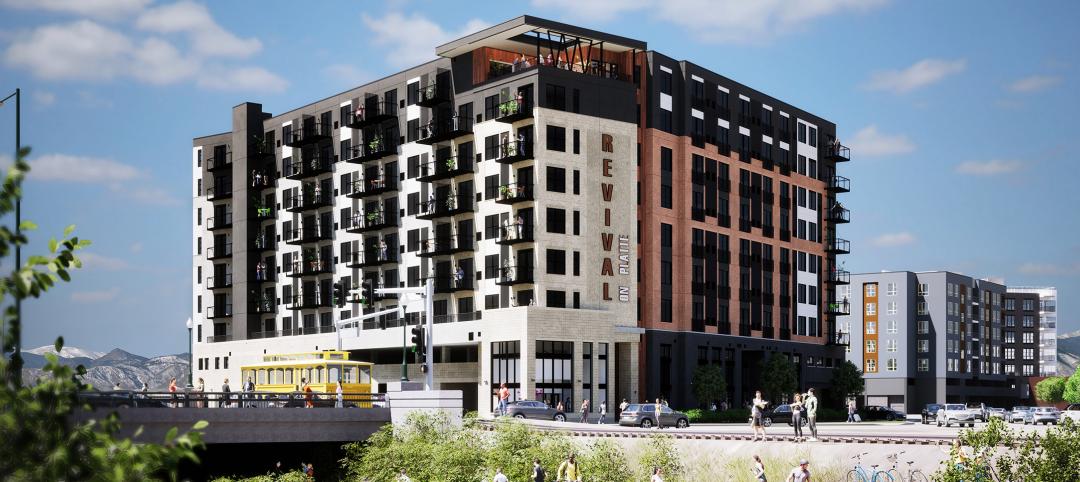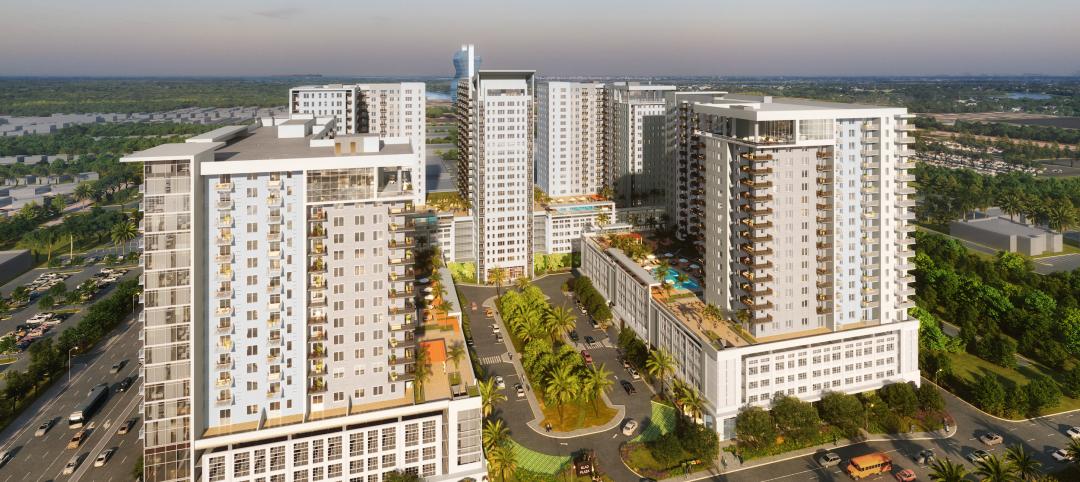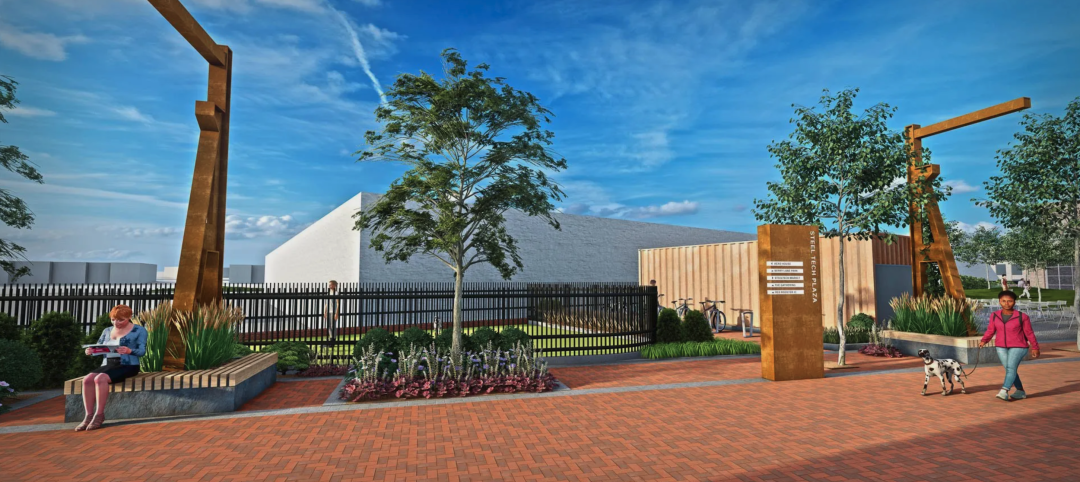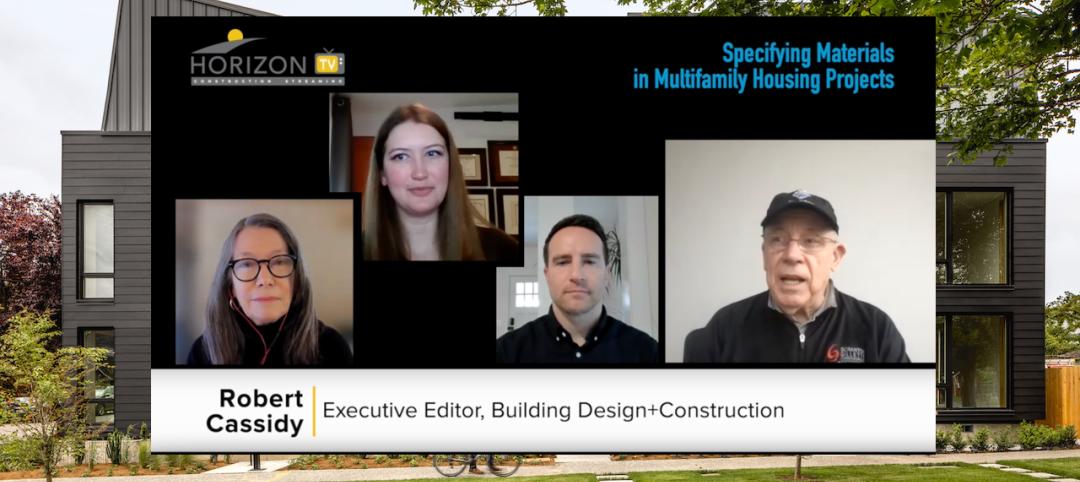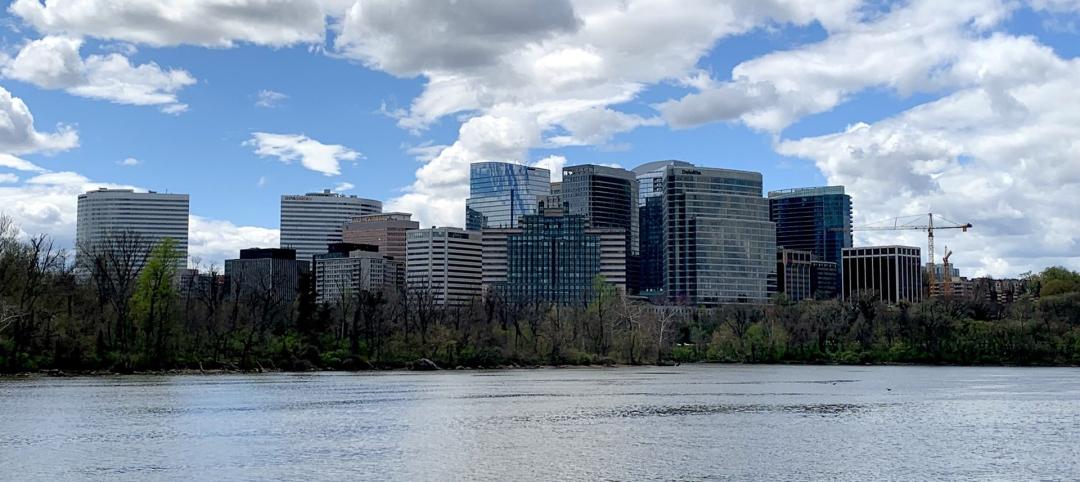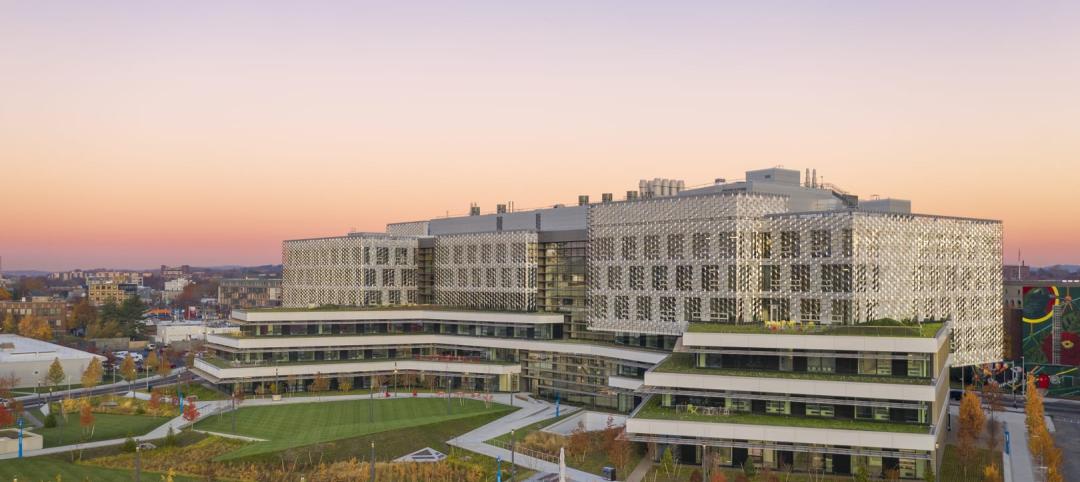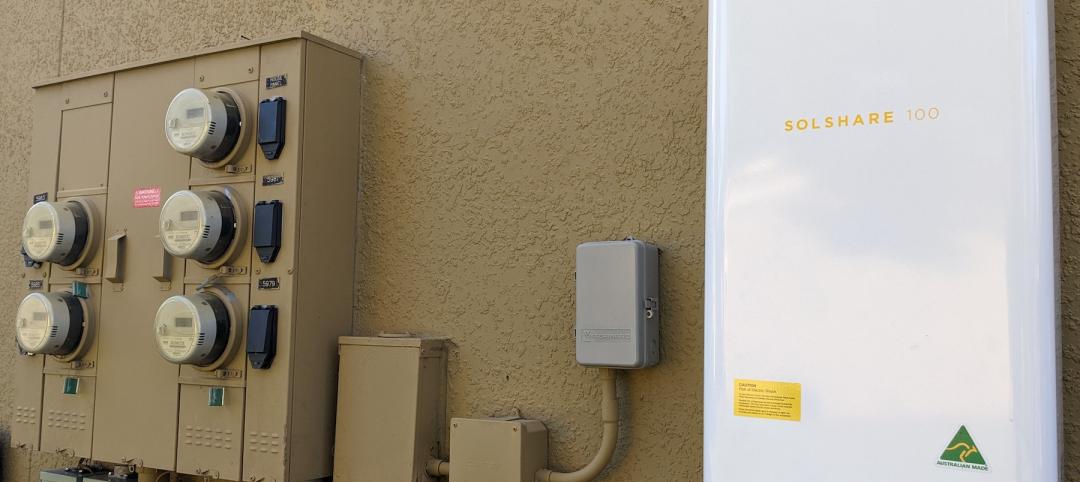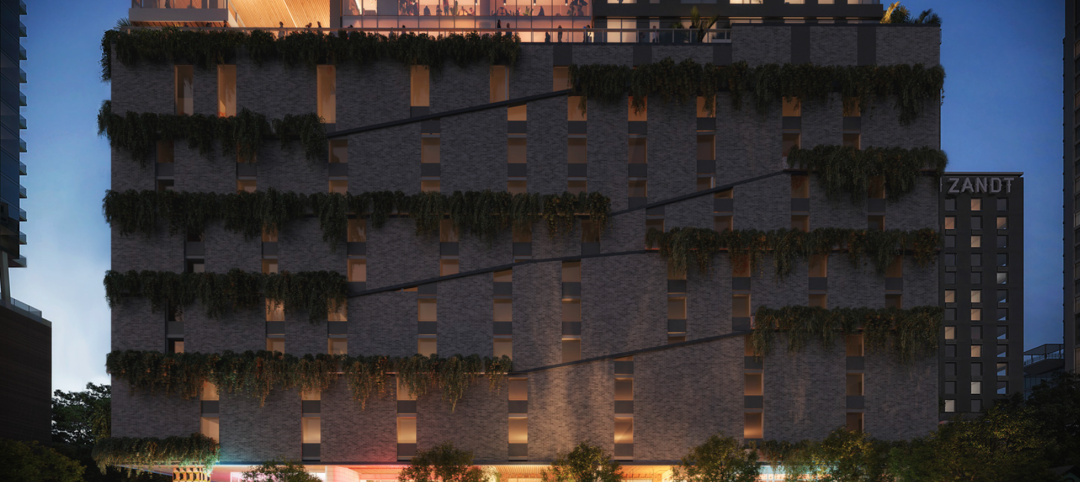Few people would have taken a look at a century-old cigar box factory with crumbling masonry and rotted wood beams and envisioned stylish loft condos, but Miles Development Partners did just that. And they made that vision a reality at Box Factory Lofts in historic Ybor City, Fla.
Once the largest cigar box plant in the world, the Tampa Box Company produced boxes of many shapes and sizes, specializing in pure-cedar containers. Its 200 or so workers also crafted coffee, tea, and spice cans from the finest Florida cedar, Cuban mahogany, mahagua, and other hardwoods. By the 1960s, though, the factory was relegated to being used as a storage facility.
In 2004, Miles Development Partners, Atlanta, purchased the 68,000-sf building and began converting it into 53 two-story lofts, ranging from 950 to 1,700 sf. Though the building had its share of deficiencies, its configuration and location were major pluses.
“The number one advantage was the courtyard,” said Jason Perry, Miles's VP of development. The hidden, interior open-air courtyard was once a favorite break spot for factory workers. After the renovation, it is still a place to relax—the long, rectangular space has been converted to a landscaped pool area. In addition, the size and shape of the building allowed the developer to build units on both sides of the interior hallway, helping to make the economics viable, Perry said.
The project's designers, Atlanta's Lord, Aeck & Sargent Architecture, were sensitive to the character-defining features of the historic building. Ybor City, once a thriving cigar manufacturing area, is a National Historic Landmark District. Located near downtown Tampa, the neighborhood has brick-paved streets and wrought-iron lampposts, with a mixture of detail-rich Mediterranean and classic architecture. The area is a popular destination for locals and tourists who visit its many restaurants, nightclubs, and bars. The Box Factory lies on the southern fringe of the historic district.
The development team worked closely with the Barrio Latino Commission (the local architectural review body) for guidance on design features to ensure that the final product preserved the historic fabric of the district and maintained its architectural integrity. This relationship helped pave the way for rezoning the property from “industrial” to “community commercial,” allowing the structure's conversion to condos.
The commission also provided inspiration for some of the design features. For instance, the developer needed to raise the roof and build a second-story in order to add enough units to make the project financially feasible, but the commission was concerned about the impact on historic appearance. The commission convinced the developer to set back the second floor so that it is not visible from the street. The commission also inspired interior features such as the restoration of original walls, high ceilings, exposed ductwork and conduits, and acid-stained concrete floors.
The preservation work included careful restoration of existing masonry walls, with every joint needing to be regrouted. Workers also removed several layers of paint from the exterior in order to identify and match the original building color. Deteriorated windows were replaced with long-lasting, insulated windows similar in appearance to the originals.
With little on-street parking available, the developer dedicated about one-third of the first floor to indoor parking, allotting one space per bedroom.
The developers took pains to retain many of the building's architectural details. Existing nine-foot-tall windows were restored and original wooden beams were reclaimed and integrated into the design of the lofts. Each unit has 15-foot ceilings in the living room area.
As restoration work progressed, some of the building's flaws were uncovered. One section of foundation was sinking, and a corner of the building had to be rebuilt. Many of the wood beams had more rot and damage than had been expected. “We ended up spending all of our contingency funds, but that was sort of expected,” Perry said. The two-year reconstruction cost was $7.1 million, with the total cost exceeding $11 million.
As of early August, about 65% of the units had been sold, according to Perry. Prices range from $179,000 to $325,000.
City officials hope that the Box Factory Lofts will spur additional high-density residential projects in Ybor City. The project has already spurred some immediate neighborhood enhancements, such as the construction of sidewalks and the addition of on-street parking along Second Avenue.
“This daring redevelopment is a striking example of the rebirth of Ybor City and the Tampa area in general,” said Walker Johnson, FAIA, Johnson Lasky Architects, Chicago, one of the judges for this year's BD+C Reconstruction Awards.
The project demonstrates that a bold vision can re-make even a decaying factory into a desirable, hip residential space with modern amenities, while retaining sensitivity to a storied past.
Related Stories
Multifamily Housing | May 1, 2023
A prefab multifamily housing project will deliver 200 new apartments near downtown Denver
In Denver, Mortenson, a Colorado-based builder, developer, and engineering services provider, along with joint venture partner Pinnacle Partners, has broken ground on Revival on Platte, a multifamily housing project. The 234,156-sf development will feature 200 studio, one-bedroom, and two-bedroom apartments on eight floors, with two levels of parking.
Codes and Standards | May 1, 2023
Hurricane Ian aftermath expected to prompt building code reform in Florida
Hurricane Ian struck the Southwest Florida coastline last fall with winds exceeding 150 mph, flooding cities, and devastating structures across the state. A construction risk management expert believes the projected economic damage, as high as $75 billion, will prompt the state to beef up building codes and reform land use rules.
| Apr 28, 2023
$1 billion mixed-use multifamily development will add 1,200 units to South Florida market
A giant $1 billion residential project, The District in Davie, will bring 1.6 million sf of new Class A residential apartments to the hot South Florida market. Located near Ft. Lauderdale and greater Miami, the development will include 36,000 sf of restaurants and retail space. The development will also provide 1.1 million sf of access controlled onsite parking with 2,650 parking spaces.
Mixed-Use | Apr 27, 2023
New Jersey turns a brownfield site into Steel Tech, a 3.3-acre mixed-use development
In Jersey City, N.J., a 3.3-acre redevelopment project called Steel Tech will turn a brownfield site into a mixed-use residential high-rise building, a community center, two public plazas, and a business incubator facility. Steel Tech received site plan approval in recent weeks.
Multifamily Housing | Apr 27, 2023
Watch: Specifying materials in multifamily housing projects
A trio of multifamily housing experts discusses trends in materials in their latest developments. Topics include the need to balance aesthetics and durability, the advantages of textured materials, and the benefits of biophilia.
Concrete Technology | Apr 24, 2023
A housing complex outside Paris is touted as the world’s first fully recycled concrete building
Outside Paris, Holcim, a Swiss-based provider of innovative and sustainable building solutions, and Seqens, a social housing provider in France, are partnering to build Recygénie—a 220-unit housing complex, including 70 social housing units. Holcim is calling the project the world’s first fully recycled concrete building.
Multifamily Housing | Apr 21, 2023
Arlington County, Va., eliminates single-family-only zoning
Arlington County, a Washington, D.C., community that took shape in the 1950s, when single-family homes were the rule in suburbia, recently became one of the first locations on the East Coast to eliminate single-family-only zoning.
Green | Apr 21, 2023
Top 10 green building projects for 2023
The Harvard University Science and Engineering Complex in Boston and the Westwood Hills Nature Center in St. Louis are among the AIA COTE Top Ten Awards honorees for 2023.
Multifamily Housing | Apr 20, 2023
A solution for sharing solar energy with multifamily tenants
Allume Energy’s SolShare sees lower-income renters as its primary beneficiaries.
Multifamily Housing | Apr 19, 2023
Austin’s historic Rainey Street welcomes a new neighbor: a 48-story mixed-used residential tower
Austin’s historic Rainey Street is welcoming a new neighbor. The Paseo, a 48-story mixed-used residential tower, will bring 557 apartments and two levels of retail to the popular Austin entertainment district, known for houses that have been converted into bungalow bars and restaurants.


